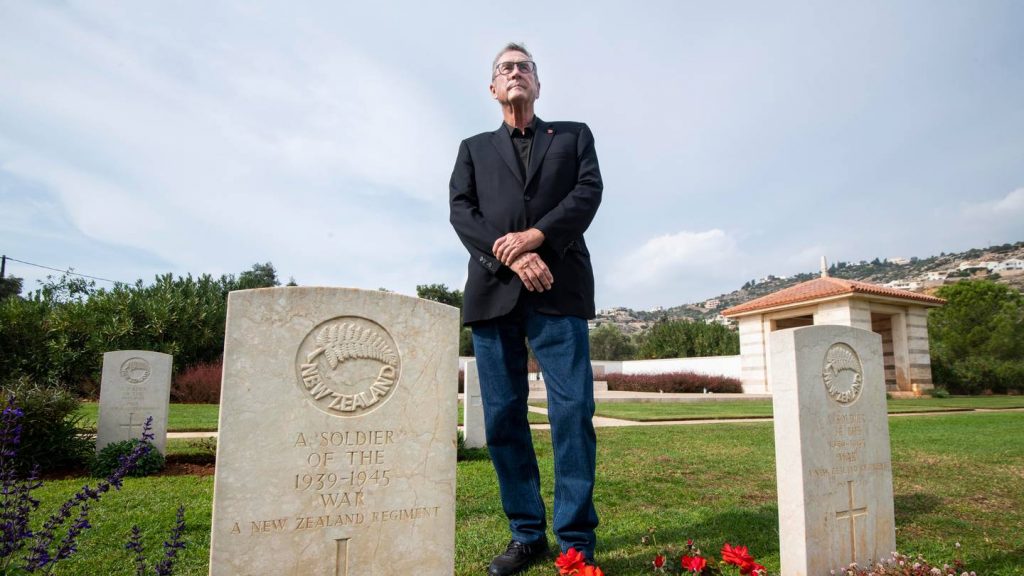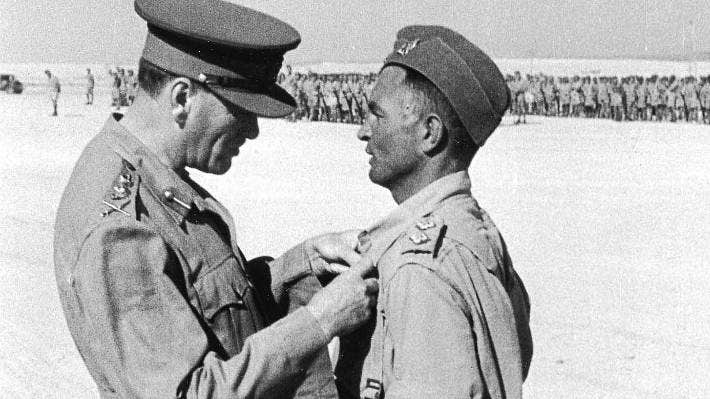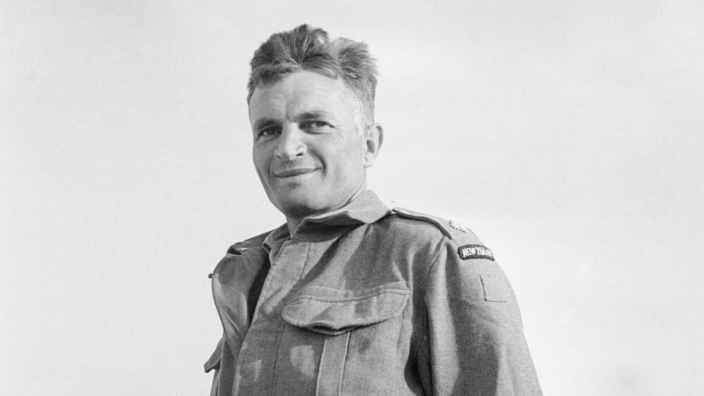Lord Ashcroft is standing among rows and rows of headstones at the Suda Bay War Cemetery in Crete, which commemorates the lives of the more than 1500 fallen Commonwealth servicemen from World War II.
Whilst there, he reflects on the life of Charles Hazlitt Upham – a New Zealand farmer turned army officer who risked his life time and again defending Crete from its German assailants.
In a piece for the NZ Herald, Lord Ashcroft details the life of this incredible man and shares how he is one of only three people ever to win the Victoria Cross (VC) twice for his actions in Crete in 1941 and Egypt in 1942. Upham is the only person to have achieved this as a combat soldier.

Who was Charles Upham?
Born in Christchurch in 1908, Charles Upham joined the 2nd NZ Expeditionary Force soon after war broke out in September 1939.
Upham earned the VC for outstanding gallantry and leadership in Crete in May 1941, and his Bar at Ruweisat Ridge, Egypt, in July 1942.
According to the NZ Government, Upham was severely wounded in Crete. In one particular incident, Upham led a counterattack on Maleme airport, which had fallen into enemy hands.
“When his company was forced to withdraw, Upham carried a wounded comrade back under fire,” Lord Ashcroft writes.
“A comrade who witnessed the incident said later: “Bullets and shrapnel were flying about. A chap walked out of olive trees and across open country. No shirt, shorts blood-smeared, carrying a badly wounded man. I said to my CSM [Company Sergeant Major], ‘He’ll either get a wooden cross or a Victoria Cross’.”

Upham was later captured by the Germans. After a failed escape attempt while recuperating in an Italian hospital, he was transferred to Germany in September 1943.
A particularly audacious solo attempt to scale his camp’s barbed-wire fences in broad daylight saw Upham become the only New Zealand combatant officer sent to the infamous Colditz camp for habitual escapers in 1944.
It was here that the Americans liberated him and others close to the end of the war.
After the war Upham returned to farming life in Canterbury, where he died in 1994 surrounded by his wife and daughters. He was 86 years of age.
Modest and selfless, but extremely tough and single-minded, Upham came to symbolise the steely determination and professionalism of the New Zealand Division in the Second World War.
Source: NZ Herald, nzhistory.govt.nz.

